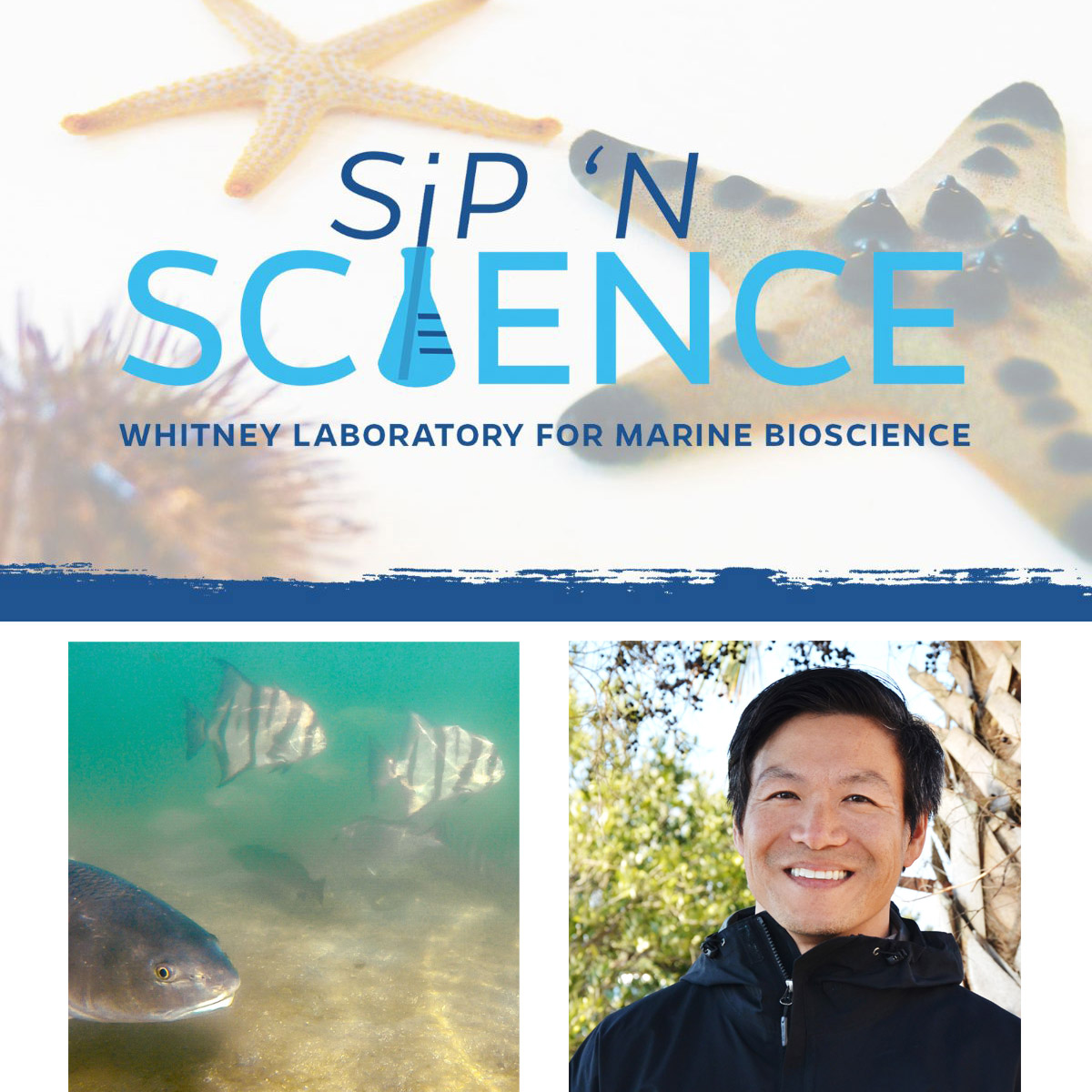 The Whitney Laboratory for Marine Bioscience
The Whitney Laboratory for Marine Bioscience

We miss all of you and wanted to continue providing lifelong learning to our community. This month would normally be the start of our Evenings at Whitney fall lecture series. As we prepare to be able to deliver it safely at Whitney's Lohman Auditorium we are launching a short science series virtually to join together!
Please join us for Sip 'N Science - until we can get back together again! Once you register just login on the dates to watch, grab a beverage of your choice, or enjoy our links to recipes.
There will be a 20 minute webinar with a Q&A interactive discussion afterwards. Registration is required. We hope you can join us!
The ability of animals to sense and navigate complex environments is unrivaled by even the most sophisticated robots known to humans. Nowhere is this more challenging to understand than in the three-dimensional environment of water, where animals are unconstrained by gravity, often in turbulence flows, and appendages and bodies are at the mercy of complex fluid-structure interactions. Fishes, which comprise over half of all living vertebrates, have an exquisite control mechanism for negotiating turbulence. I will describe advances my lab has made in understanding how fish swim in unsteady flows, and how by study nature’s designs we can reveal insights into some of the biggest challenges in engineering and robotics.
Drink Recipe - Make Your Own Ocean Water Punch!
James C. Liao is an Associate Professor of biology at the University of Florida and the Whitney Laboratory for Marine Bioscience, a UF University Term Professor, and Affiliate Professor in the Clayton Pruitt Family Department of Biomedical Engineering. His research integrates approaches from engineering, neuroscience and physiology to understand the fundamental principles of animal sensing and locomotion. In particular, he is interested in understanding how fishes behave from the perspective of multiple biological levels, from single neurons to group behavior. He is a Research Associate at the American Museum of Natural History and an Affiliate Curator of Ichthyology at the Florida Museum of Natural History. James received his B.A. magna cum laude in Biology from Wesleyan University, and his M.A. and Ph.D. in Biomechanics from Harvard University. He was then an NIH postdoc and Research Associate in the Department of Neurobiology and Behavior at Cornell University. He has won research awards from The Society for Experimental Biology and the American Society for Ichthyologists and Herpetologists, and has been recognized by the Derek Bok Center for Excellence in Teaching at Harvard.